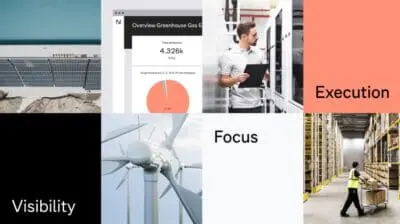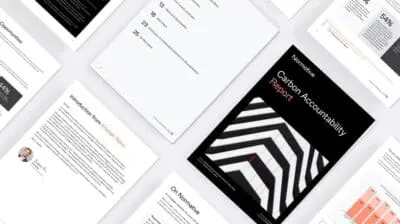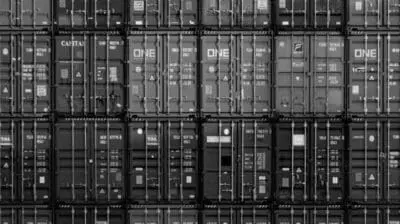The pioneers & history of carbon accounting

A brief history of carbon accounting, from Renaissance Italy to today.
In an earlier article, we explained what carbon accounting is: the way an organization keeps track of how much greenhouse gas it emits.
Similar to financial accounting, carbon accounting quantifies the impact of an organization’s business activities. But instead of financial impact, carbon accounting measures climate impact.
Carbon accounting enables businesses to reduce their greenhouse gas emissions, and, as such, it’s one of the most important tools we have for fighting climate change and keeping the planet livable for future generations. It’s also become a source of competitive advantage for businesses who use it, helping them validate their sustainability work and thus attract customers, investors, and employees.
But for as essential as carbon accounting has become to modern business, it might not exist if it weren’t for the cleverness of a merchant in 13th century Italy. Here’s a brief history of carbon accounting, beginning with that Italian merchant and finishing with today’s entrepreneurs.
Carbon accounting pioneers and milestones
1299
The Florentine merchant Amatino Manucci uses double-entry bookkeeping to record his firm’s debits and credits. This is the first recorded usage of double-entry bookkeeping, an accounting method that would become the core of modern financial accounting due to its accuracy. Financial accounting is the model on which carbon accounting is based.
1974
R.G. Hunt publishes the Life Cycle Assessment (LCA): a method for evaluating the environmental impact of a commercial product or service through all stages of its life cycle, from cradle (raw material extraction) to grave (final disposal). LCAs will later become an integral part of carbon accounting.
2000
The corporate carbon footprint software, Enablon, is founded in France by Philippe Tesler. In Denmark, Bo P. Weidema creates LCA consultants 2.0 to create more-standardized LCAs.
2001
The Greenhouse Gas Protocol Corporate Standard is published, with Janet Ranganathan as lead author. This sets the standard for corporate carbon footprinting and the principles on which most modern carbon accounting is based.
2006
Thomas Weideman publishes the Environmentally Extended Input-Output Analysis (EEIO), which estimates the emissions of industry sectors. This lays the groundwork for carbon accounting’s transaction-based emissions calculations.
2007
GreenDelta, led by Andreas Ciroth, creates the open-source LCA software Open LCA. GreenDelta would go on to develop repositories for storing emissions data and emissions factors, which are necessary for carbon accounting’s emissions calculations.
2011
Bo P. Weidema and his team create the open-source Exiobase database, which compiles emissions factors from around the world. This data enables more complete and comprehensive emissions caöculations throughout all stages of a product’s life cycle.
2014
Kristian Rönn co-founds Normative, the world’s first carbon accounting engine. Rönn aimed to go beyond existing carbon calculators by integrating LCA data and methodologies into a standardized way of accounting for greenhouse gas emissions. The resulting engine automatically calculates emissions based on the enterprise resource planning (ERP) data businesses already have on hand, enabling fast, consistent, and cost-efficient carbon accounting for businesses of all sizes and industries.
2021
The European Commission proposes the Corporate Sustainability Reporting Directive (CSRD). This legislation requires nearly 50,000 EU companies to report their climate and environmental impact beginning with the 2024 financial year, making carbon accounting a de facto requirement for large businesses based in or operating in the EU.
Does your business have to comply with CSRD, or other climate legislation?
Find out by using answering five quick questions.
Go to the Legislation Tracker
Carbon accounting today
Carbon accounting is a powerful enabler in the fight against climate change, an essential tool for keeping businesses legally compliant, and a source of competitive advantage.
Seizing opportunities
Businesses that use carbon accounting do more than avoid negative environmental and legal consequences – they also seize opportunities.
Customers, investors, and employees are increasingly demanding that businesses take climate action. Those that do will earn customer trust, easier access to investment, and more loyal employees.
Carbon accounting enables businesses to take verifiable climate action. As such, it’s quickly evolving to become a must-have for businesses.
Staying compliant & avoiding risks
As countries mandate and expand climate impact reporting, more and more businesses have to report their greenhouse gas emissions or else face fines and legal action. For businesses that use carbon accounting, reporting their emissions is as simple as sharing their emissions data in the proper format.
Additionally, using carbon accounting can prevent businesses from unintentionally greenwashing.
Greenwashing happens when a business makes untrue claims about its sustainability work. This isn’t always done intentionally. For example, a business may claim to compensate 100% of its carbon emissions. But if this business is only calculates its direct emissions, it’s actually addressing only the tip of the iceberg when it comes to its carbon footprint, because 92%[EPA] of a business’s carbon footprint comes from its indirect value chain emissions.
Greenwashing, even when unintentional, can result in serious damage to a business’s reputation – and thus its revenue and recruitment efforts. By using carbon accounting, businesses can ensure they address their complete carbon footprint to avoid unintentional greenwashing.
Tracking climate progress
To meet Paris-aligned climate goals and prevent the worst consequences of climate change, businesses worldwide need to achieve net zero emissions. And to do so, they first need to accurately calculate their emissions – because you can’t reduce what you can’t measure.
Carbon accounting empowers businesses to reach net zero by enabling comprehensive and precise greenhouse gas calculations.
Get started with carbon accounting
Keep your business compliant and competitive in a fast-changing business landscape.











